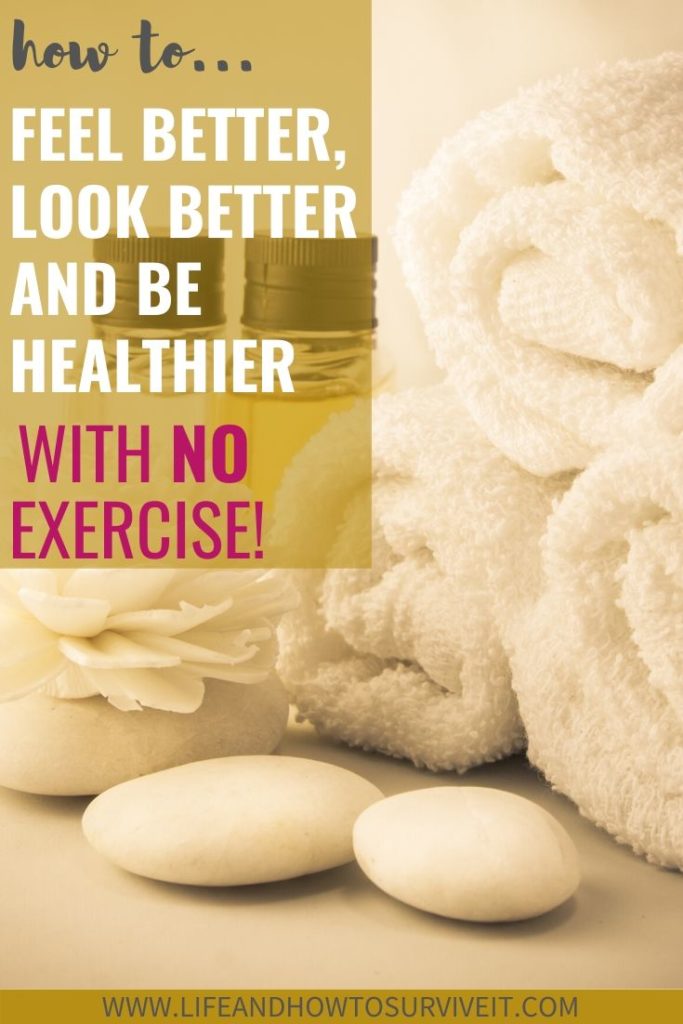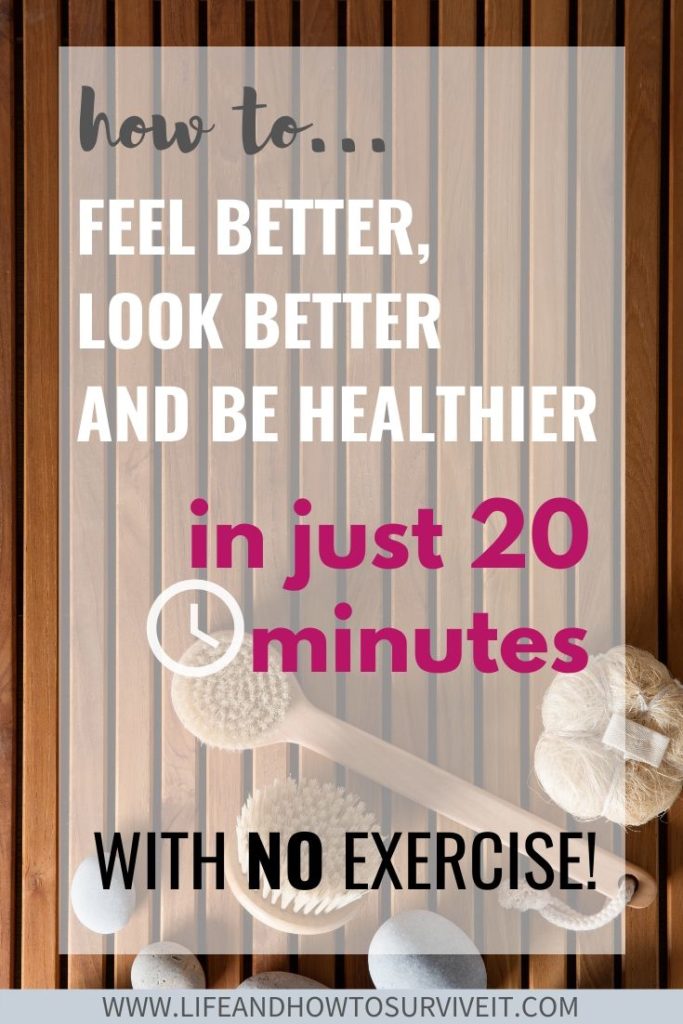There are certain images that can’t fail to conjure up a sense of warmth and coziness to beat the winter chill: log fires, a fondue for dinner, hot bubble baths… and saunas. I’ve been a sauna fanatic ever since I had my first one on a ski holiday, many years ago. Back then I just did it because it felt great. As it turns out, there are some proven scientific reasons behind it ‘just feeling great’. We no longer need to rely on anecdotal evidence of sauna fanatics like me: studies show that there are various health benefits of saunas.
For those of you who’ve never tried it, you might be wondering what could possibly be so appealing about sitting in a tiny room while sweat drips from your every pore. OK, so put like that, it maybe doesn’t sound so enticing. Believe me though, even if the experience itself doesn’t blow you away, several studies have shown that saunas are great for our health.
What are the health benefits of a sauna?
A Finnish medical doctor, Jari Laukkanen, did a series of studies on the health benefits of saunas. At the time, 2015, there wasn’t much research available, but Laukkanen was a firm believer in the benefits of saunas, having seen the effects it had on himself.
In his research he concluded that the positive effects of frequent time spent in saunas is cumulative, and greatly reduces the chances of heart disease, cardiac death, dementia and Alzheimers.

1. Having a sauna is good for heart health
Laukkanen found that ‘the risk of cardiovascular disease mortality decreased linearly with increasing sauna sessions per week’. In other words, the more you do it, the greater the benefits. In a study of middle aged men, those who used the sauna two to three times per week were 27 percent less likely to die from cardiovascular-related causes than men who didn’t use saunas at all.
Dr. Laukkanen points out that many of the health benefits of a sauna are similar to those resulting from moderate to high-intensity exercise. Pretty incredible, huh? Sit in a sauna, or, do 20 minutes of HIIT: a no-brainer! (Actually, I do like to do HIIT too sometimes…)
2. Saunas lower the risk of both Dementia and Alzheimer’s
Dr. Laukkanen conducted a 20-year study with over 2,300 participants, which showed that using a sauna 4-7 times per week lowered the risk for both Alzheimer’s & Dementia. The study included a control group, of people who rarely used saunas.
3. Saunas help to relieve stress
The quiet, cosy space of a sauna is conducive to stress relief. It is like a mini-retreat from the hustle and bustle of daily life. The heat helps to relax away muscle tension, improve circulation and stimulate the release of endorphins.
Endorphins are the body’s ‘feel good’ chemical, working like opiates to relieve stress, soothe the mind and increase pleasure and happiness. The level of endorphins released during sauna bathing can be up to three times the normal amount.
The delicious aroma of wood in a sauna also helps us to relax. It is reminiscent of being outside in nature, an activity also proven to improve our health. Why not add some phytoncide oil drops to an oil burner in the sauna to get even more benefits? Phytoncides are natural substances emitted by some plants and trees, and they have anti-microbial and stress-relieving effects. If you’re interested in phytoncides, read more in Dr Lobisco’s article.

4. Saunas help the body recover from injuries and intense physical activity
My choice of a gym depends on whether it has a sauna or not. Most gyms have a good variety of classes, and maybe a pool, but not every gym has a sauna. A visit to the sauna after a workout is a fabulous way to relax those hard-working muscles.
As our body temperature increases in the heat of the sauna, endorphins are released, and we already know that this can have the effect of relaxing the body and lessening muscle aches and pains.
Another effect of increasing the body temperature is that the blood vessels dilate, thereby improving blood circulation. This increased blood flow in turn speeds up the body’s natural healing process.
5. Saunas help our bodies to detoxify
As a consequence of deep sweating and increased blood circulation, the body flushes out some of the toxins that we absorb from our environment and diet every day. Saunas are a great way to detoxify and without a doubt, far more appealing than having a liver cleanse.
6. Saunas can help ward off a cold and alleviate symptoms
When you’ve been suffering from a cold, have you ever popped your head over a bowl of steaming water, with a towel over your head, and just breathed in the steam? That process really helps to clear the sinuses and it’s even more effective if you put mint or eucalyptus leaves in the hot water.
A sauna will do the same thing. A cold often leaves us feeling stuffy, with difficulty breathing properly. This is because our airways can be slightly constricted by the inflammation that often occurs in a cold. The heat from the sauna helps to open up airways so you can breathe easier.
Very often we also get headaches, tiredness and aching muscles as symptoms of a cold. As the sauna relaxes our muscles and the heat opens up our blood vessels and improves blood flow, more oxygen is delivered to our brains. This in turn relieves the sense of exhaustion.
Some German research showed that saunas reduced the incidences of colds and flu. As a consequence of the heat and steam, the body produces white blood cells more rapidly, which in turn helps to fight illnesses and improve our immune system. And of course due to the improved blood flow, those blood cells get to where they need to be even faster!
7. Saunas can help us sleep better
Our body temperature naturally increases in the late evening, but drops at bedtime. A sauna before bed can help you sleep better by raising your body temperature just before it’s time to sleep, and your body begins to cool down after the sauna.
Combine this with the sauna’s tendency to calm and relax us, and you should have a much more restful sleep.

8. Saunas are good for the skin
Saunas are excellent skin cleansers. When we sweat, dead skin cells are replaced and capillary circulation is improved. Bacteria is cleaned out of the epidermal layer and sweat ducts. And not a magical face cream in sight!
9. Saunas make our hair look good.
The sebaceous gland on our scalps releases compounds that help condition and moisturise our hair. Time spent in a sauna activates this gland, releasing more of these fabulous little compounds, thereby helping to make our hair look great. Clearly this isn’t the case while you’re actually in the sauna. At that point, you will be sceptical about the health benefits of saunas when it comes to your hair, since your hair will probably look limp and sweaty, which of course, it will be…
10. Saunas can help with weight loss
When we sweat, quite a bit of energy is needed. The body burns off fat and carbs, converting them into the energy required. As our heart activity increases, more oxygen is needed by the body, and consequently more calories are burned off.
In one study, Dr. Ward Dean, M.D., the anti-aging and life extension medicine expert, concluded that, “A moderately conditioned person can easily sweat off 500 grams in a sauna in a single session, consuming nearly 300 calories in the process.”
This doesn’t mean of course that we can just stuff our faces with cake and think it’s OK because we’ll have a sauna later! Like anything else, a sauna can form part of an approach to staying fit and healthy, both physically and mentally.
11. Saunas can be a social activity
Whilst it’s true that a sauna session might be a very private, calming time to spend happily alone, it can also make for a great social connection. It could be a lovely, mini-spa day with friends, for instance. And now that my brother has installed a sauna at his house, it has made my visits to him and his family even better. Now it’s not just great food and wine, but the chance for saunas and relaxed chatting. For some reason, saunas encourage a different kind of conversation to the ones you might find yourself having over dinner.
How long should you sit in a sauna?

If it’s your first time, start gently. Stay for 5 minutes and then leave. You can have a break, cool down, have a quick cold shower, and go back in for another 5 minutes when you’re ready.
Some seasoned users stay in for 20 minutes at a time. My preferred method is 10 minutes in the sauna, then a couple of minutes out while I bravely jump into the cold shower, then back into the sauna. All together, I do three of these cycles, so my entire time is around 35 minutes.
Cold water plunging/immersion: to do or not to do?
Whether or not you choose to do the cold water contrast after the sauna is up to you. In my first ever sauna, all those years ago at a ski resort, instead of a cold shower there was an ice-water immersion pool. As you came out of the sauna, you stepped into the pool and had to walk through it to exit on the other side and return to the sauna. Yikes! I still remember how cold that felt. It gives me goosebumps just imagining it now…
You’ll perhaps be relieved to hear that simply showering in cold water briefly can achieve the same results as marching through an ice-water pool. The reason you might be prepared to undergo such crazy self-torture is that the benefits of the sauna can be accentuated when followed by a cold shock to the system.
The sudden blast of cold water causes the skin’s blood vessels to quickly constrict.
Blood pressure increases, as does heart rate, adrenaline, and the release of endorphins. Therefore, the benefits of being in a sauna are intensified by the cold water exposure afterwards.
A cold water shower or immersion after the sauna has been shown to be beneficial for people with muscular damage or soreness, or those with an inflammatory illness such as arthritis too.
Health risks and saunas
Saunas and sufferers of heart disease
However, if you choose to take the goosebump route, caution is advised regarding immersion of the head and face.
Cold immersion practices are NOT advised for anyone with heart disease, as in some cases it can result in cardiac arrhythmia and coronary artery spasm. We have cold receptors in our face and scalp, which respond to a rapid temperature drop. When triggered, they can stimulate a complex cardio respiratory reaction. Since heart arrhythmias are common during this reaction, the cold water immersion treatment is best avoided for those with heart disease.
So what about people with cardiovascular problems, can they use a sauna without cold immersion afterwards? According to Dr. Laukkanen, yes: ‘It is a safe activity and can even be used in people with stable CVD, provided it is used sensibly for an appropriate period of time.”
Saunas and dehydration
We sweat a lot in the sauna. This sweating is essential to gain the benefits. However, because of the profuse sweating, dehydration could be a problem with excessive sauna use. Make sure that you drink plenty of water before and after your sauna session and avoid dehydration problems.
Some people have tried to use saunas for rapid weight loss through loss of water via sweating, and this has resulted in a few cases of heat stroke and sudden cardiac death. Whilst saunas can assist in weight loss, it would be dangerous to treat this practice as a principle means of weight loss. We all know that the safest and healthiest way to lose weight is to eat less and move more!
Saunas and alcohol
I would be the first to say that a delicious glass of wine after a relaxing sauna is a perfect combination. Like anything else though, everything in moderation. It’s best to leave the alcohol consumption until after your sauna: drinking alcohol before and during it is risky.
Our bodies create a hormone during heat stress to help the kidneys retain fluid, but alcohol counteracts that process. Alcohol also makes blood vessels dilate even more than usual when we’re in a sauna. This could lead to a sudden drop in blood pressure and consequently, loss of balance or fainting. You reeallly don’t want to fall over on to the heater in a sauna.
Alcohol also increases the risk of both arrhythmia and myocardial infarction, as it stimulates cardiac muscle and reduces coronary artery flow.

What should I wear in a sauna?
A little aside here, really not directly related to the health benefits, unless of course you count embarrassment as a mental health problem… Some saunas can be booked privately, allowing you to wear absolutely nothing, should you choose to. Indeed, some sauna users insist this is the only way.
However, unless you have this option, or you have access to a sauna in someone’s home, you might want to wrap a towel around you. You could even wear a bathing suit, if you feel more comfortable.
Either way, the sauna should be an enjoyable experience for you, not one that leaves you worried about what you look like!
Saunas are good for us
Whether it’s for the physical health benefits that a sauna offer, or the welcome retreat from busy and stressful daily life, a sauna is not just good for us, it makes us feel good too. And after flushing out all those toxins, you don’t feel half as bad opening that bottle of wine afterwards!
Refs:
BMC Medicine
Finnleo Saunas
Mark Timmerman
MDTylo Saunas
Break Free Medicine
Mayo Clinic

